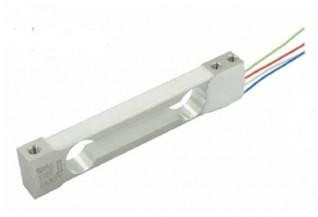Single point load cells are indispensable components in various industrial processes, offering precise and reliable weight measurement capabilities. These compact and versatile sensors play a crucial role in applications ranging from weighing scales and filling machines to checkweighers and conveyor systems. In this blog post, we'll explore the fundamentals of single point load cells, their working principles, key features, and diverse applications across industries.
What are Single Point Load Cells?
Single point load cells, also known as platform load cells, are force sensors designed to measure weight or force applied at a single point. They typically consist of a strain gauge arrangement mounted on a metal body, which deforms proportionally to the applied force. This deformation results in a change in electrical resistance, which is measured and converted into a weight reading by an accompanying indicator or controller.
Working Principle
The working principle of single point load cells is based on the strain gauge technology. When a load is applied to the load cell's platform or weighing surface, it causes the metal body to deform slightly. This deformation results in a change in resistance in the strain gauges, which are bonded to the metal body. By measuring this change in resistance, the load cell accurately determines the applied force and converts it into a weight reading.
Key Features
-
High Precision: Single point load cells offer exceptional accuracy and repeatability, making them suitable for applications requiring precise weight measurements.
-
Compact Design: Their compact and low-profile design allows for easy integration into various industrial systems and equipment without occupying much space.
-
Versatility: Single point load cells are suitable for a wide range of applications, including bench scales, platform scales, packaging machinery, and industrial automation systems.
-
Durability: Constructed from robust materials such as stainless steel or aluminum, single point load cells are capable of withstanding harsh industrial environments and heavy-duty use.
-
Easy Installation: These load cells typically feature simple mounting arrangements, making installation quick and hassle-free.
Applications
-
Weighing Scales: Single point load cells are commonly used in bench scales, platform scales, and counting scales for accurate weight measurement in industrial and commercial settings.
-
Filling Machines: In filling and dosing applications, single point load cells ensure precise dispensing of liquids, powders, and granular materials into containers or packaging.
-
Checkweighers: These load cells play a crucial role in checkweighing systems, verifying the weight of products to ensure compliance with quality standards and regulations.
-
Conveyor Systems: Single point load cells are integrated into conveyor belts and systems to monitor product weight during transport and sorting processes.
-
Packaging Machinery: In packaging applications, single point load cells facilitate accurate filling, sealing, and labeling of products, improving efficiency and reducing waste.
Conclusion
Single point load cells are indispensable tools in industrial weighing and measurement applications, offering unmatched accuracy, reliability, and versatility. Whether used in weighing scales, filling machines, checkweighers, conveyor systems, or packaging machinery, these load cells ensure precise weight measurement and process control, ultimately enhancing productivity, efficiency, and product quality in diverse industries. As technology continues to advance, single point load cells are expected to play an increasingly important role in optimizing industrial processes and meeting the evolving needs of modern manufacturing.
Click Here For More : https://www.measurex.com.au/product-category/load-cells/single-point/
Contact Us For Information
Phone Number: (0) 39558 2420
Email : sales@measurex.com.au
Address: Unit 14/42 Garden Blvd, Dingley Village VIC 3172, Australia
Website : https://www.measurex.com.au/

